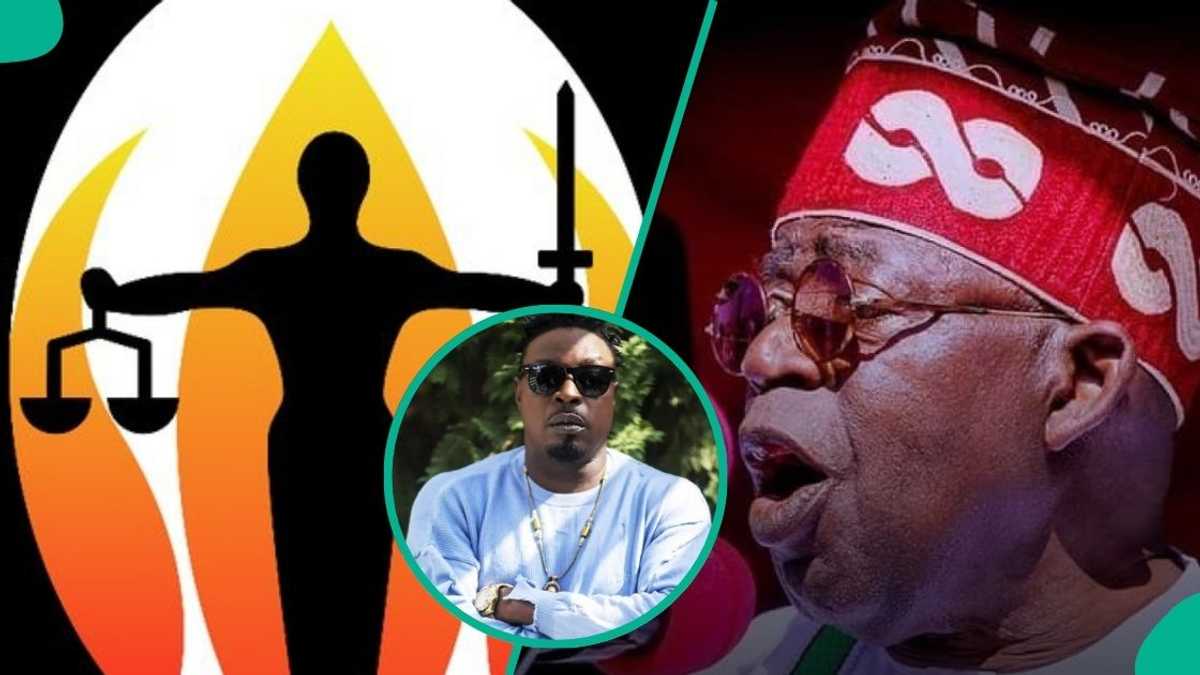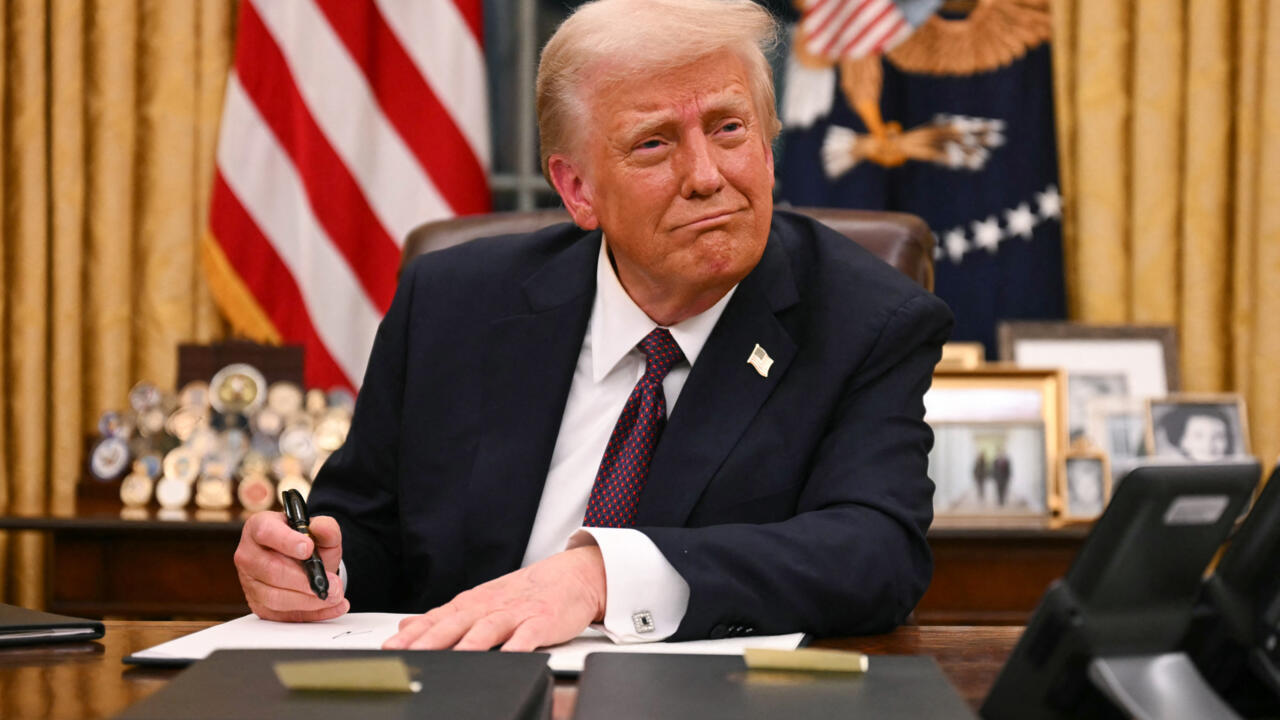A 129-Year-Old San Francisco Lawsuit Could Stop Trump From Ending Birthright Citizenship
Failed to save article
Please try again
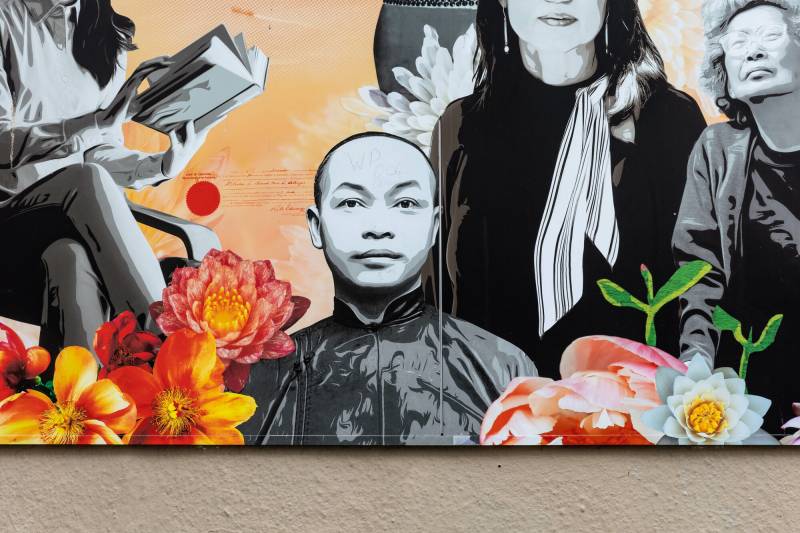
Wong Kim Ark, who was born in San Francisco to parents who were Chinese citizens and whose Supreme Court case established birthright citizenship, is one of the individuals featured on the Asian American Community Heroes mural on Nov. 19, 2024. Local artist Anne Marie Lapitan created the mural. (Gina Castro/KQED)
Within 24 hours of Trump signing the executive order, 18 state attorney generals — led by California’s Rob Bonta, alongside officials from New Jersey and Massachusetts — announced a lawsuit against the Trump administration in response. “The president chose to start his second term by knocking down one of our country’s foundational, long-standing rights,” Bonta said at a press conference on Tuesday.
Not only does the Constitution protect birthright citizenship, Bonta said, but so does a Supreme Court case that was decided over 120 years ago: United States v. Wong Kim Ark.
In 1898, San Francisco-born man Wong Kim Ark successfully defended his claim to being a U.S. citizen in the Supreme Court after officials claimed that his parents being Chinese nationals at the time of his birth disqualified him from being an American citizen. For the Bay Area’s Chinese community, who quickly mobilized to defend Wong, the case represented a major victory at a time when anti-Chinese sentiment and xenophobia were rampant across the country.
And as California and dozens of other states prepare for a complicated legal battle against Trump over birthright citizenship, the story of Wong Kim Ark is more relevant than ever.
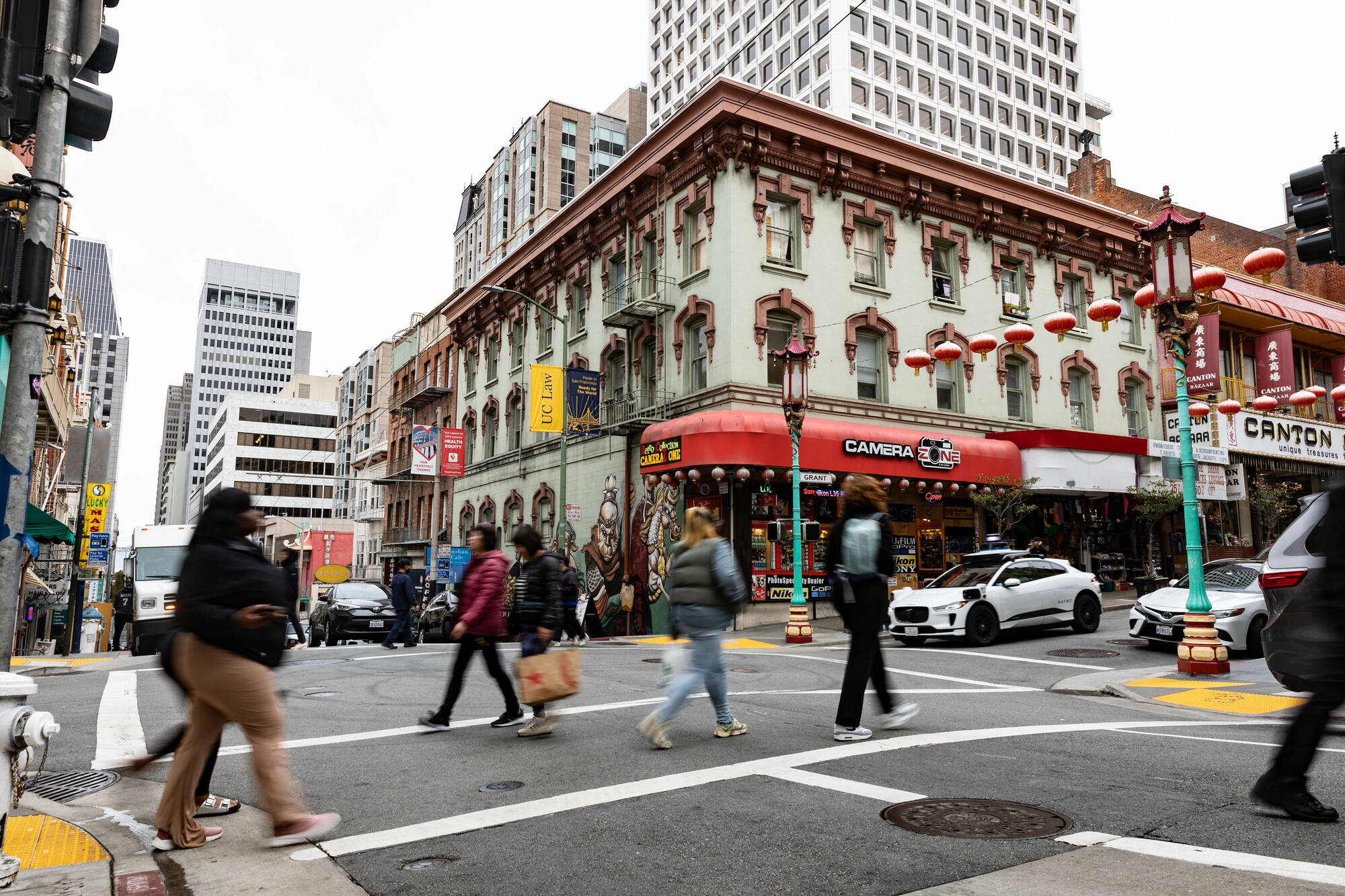
In the 1870s, San Francisco was transitioning from a Gold Rush boomtown to an established American metropolis — largely thanks to the labor of tens of thousands of immigrant workers from all over the world. Two of these immigrants were Wee Lee and her husband Wong Si Ping, who came from China and gave birth to a son, Wong Kim Ark, in their home located above their shop on Sacramento Street in the heart of San Francisco’s Chinatown.
As an adult, Wong traveled back and forth between California and his family’s village in southern China. On one of these trips to China, he met and married his wife, who stayed behind with their children, while Wong returned to California, where he worked as a cook.
But on his return to the U.S. from a trip to China in 1896, Wong was detained by customs officials in San Francisco, who blocked him from reentering the U.S. and insisted that he was not an American citizen but rather a Chinese national — a group who at the time faced intense immigration restrictions thanks to the Chinese Exclusion Act of 1882. Officials told Wong that his citizenship depended not on where he was born but rather on the nationality of his parents.
Wong was in a complicated situation, said David Lei, a community historian and board member of the San Francisco-based Chinese Historical Society of America.
“He was a cook. He was in his early 20s. No money — he was really a nobody,” Lei said.
Help for Wong came in the form of the Chinese Consolidated Benevolent Association (CCBA), also known as the Chinese Six Companies, an organization established 175 years ago in Chinatown that pooled the resources of many Chinese families and businesses to buy land, develop property and even help finance a hospital.
“They were the GoFundMe for the Chinese community, and every time there was a lawsuit, they would raise the money to hire the best lawyers for their community,” he said, enabling CCBA to “fight against racist laws.”
From the 1880s onward, the Chinese immigrant community throughout the U.S. filed over 10,000 lawsuits challenging anti-Chinese laws. One powerful tool in their fight against discrimination was a fairly recent addition to the Constitution: the Fourteenth Amendment.
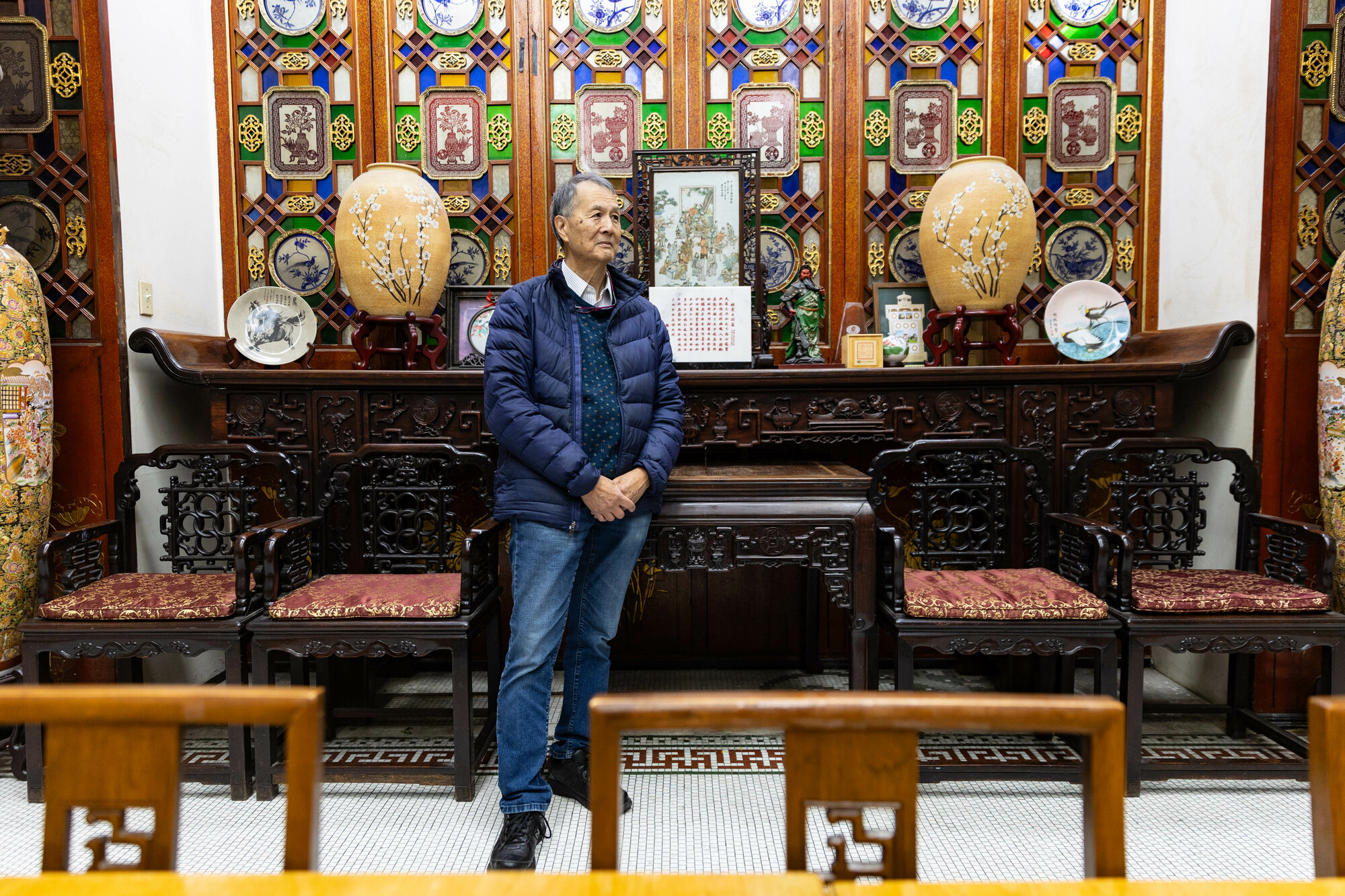
Birthright citizenship for all children born in the U.S. is articulated in the Fourteenth Amendment and is not the result of a Biden administration policy, as Trump has claimed in the past.
“The Constitution is our foundational document. All three branches of government have to serve the Constitution,” said Ming H. Chen, professor at UC Law San Francisco and faculty-director of the school’s Center for Race, Immigration, Citizenship, and Equality. What’s more, she said, “the president can’t go beyond the bounds of the Constitution in issuing an executive order.”
Enacted in 1868, the Fourteenth Amendment states in its first clause that “All persons born or naturalized in the United States, and subject to the jurisdiction thereof, are citizens of the United States.”
This amendment — which protects rights like birthright citizenship, due process and equal protection of the laws into the Constitution — was Congress’s response to the laws being passed by many Southern states after the Civil War that severely restricted the rights of formerly enslaved Black Americans and their children.
At the time, most countries based citizenship on bloodline, Chen said.
“The United States from its very beginning was struggling to define its own […] national identity,” she said. “Do they want it to be based on a conception of citizenship similar to what we’ve seen in Europe and a lot of the world, which bases citizenship on parentage?”
Another option was having citizenship based on where you were born — a more egalitarian idea, Chen said. “When you look at the 14th Amendment, I think it tells us that the United States really tried to enact a promise of equality.”
Unable to step on U.S. soil., Wong lived on ships in the waters of the San Francisco Bay. Meanwhile, in Chinatown, the CCBA hired a team of lawyers to represent Wong, who argued that he was an American citizen based on the fact that he was born in the U.S. and not on the nationality of his parents.
When United States v. Wong Kim Ark reached the Supreme Court, it represented a “pivotal moment where [SCOTUS] took up — for the very first time — this question of how to interpret the Fourteenth Amendment’s citizenship clause for everybody,” said Leti Volpp, a law professor at UC Berkeley.
“And not just for people whose parents were illegally imported as enslaved people from Africa or were born to persons who were Black in the U.S,” she said.
Volpp said that when the Fourteenth Amendment was enacted, there were three exceptions to the citizenship clause:
In its legal argument, the U.S. government insisted that at the time of Wong’s birth, his parents — despite being merchants and not diplomats — were subjects to the Emperor of China and not the jurisdiction of the U.S. government. However, after a two-year legal battle, the Supreme Court ruled in favor of Wong Kim Ark in 1898, affirming his status as an American citizen, along with all the rights that came with it.
“The amendment, in clear words and in manifest intent, includes the children born within the territory of the United States of all other persons, of whatever race or color, domiciled within the United States,” Justice Horace Gray wrote in the majority opinion. He noted that if citizenship was denied to the children of parents that were citizens of other countries, that would in turn “deny citizenship to thousands of persons of English, Scotch, Irish, German, or other European parentage, who have always been considered and treated as citizens of the United States.”
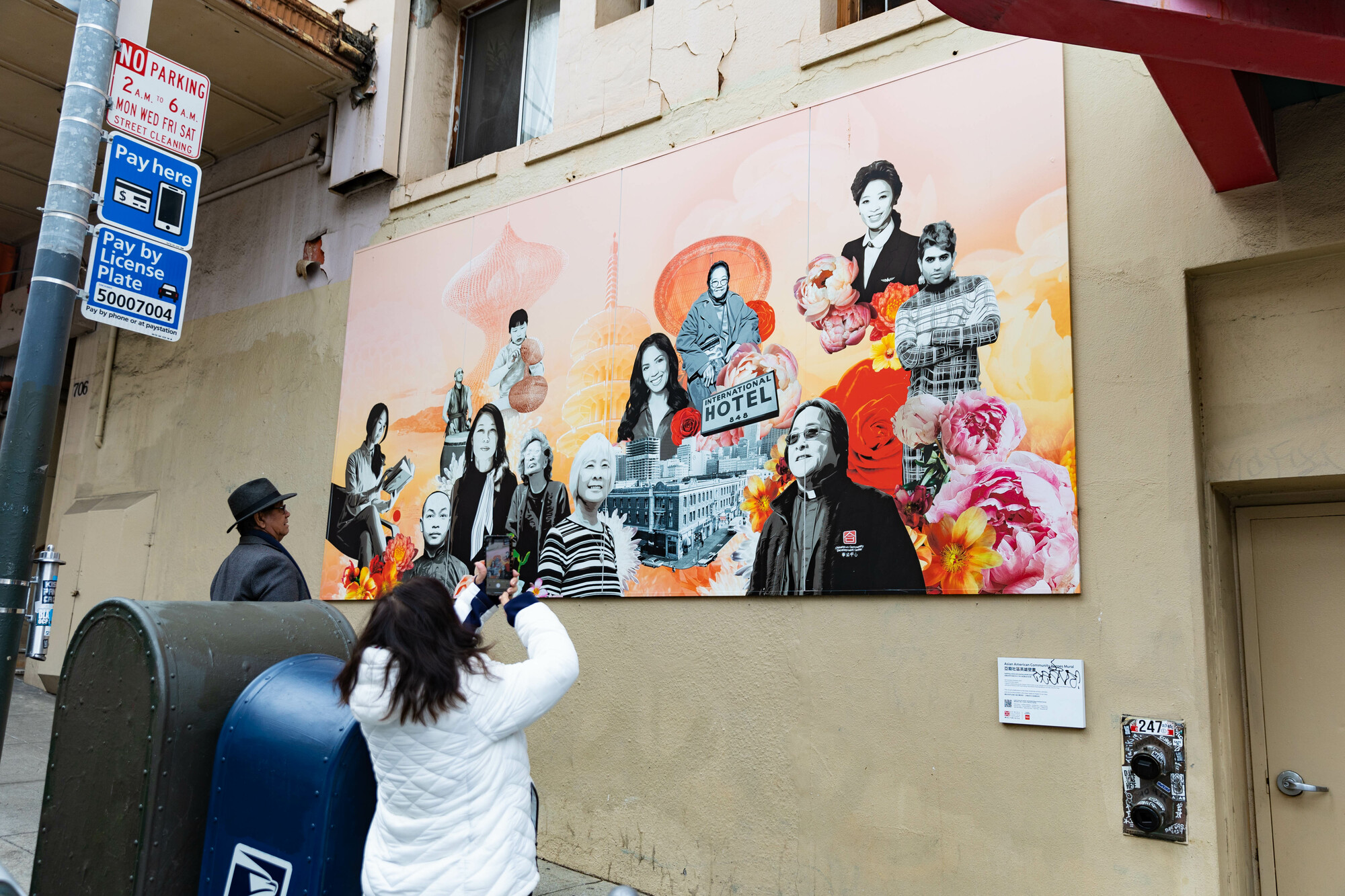
So, how does an 1898 Supreme Court ruling influence what an American president can do in 2025?
As it’s written, Trump’s executive order requires federal agencies to no longer grant documents that recognize the U.S. citizenship of children who are born on or after Feb. 19, 2025, to undocumented parents. These documents could include a U.S. passport or a Social Security number. If an individual state or local government provides documents that state a child in this situation is an American citizen, the federal government will not recognize that documentation.
Any child born from now until Feb. 18, 2025 — or born before Trump signed the executive action on Jan. 20 — will still be recognized as a U.S. citizen by the federal government.
But the legal battle against this order has already begun. Besides the coalition of dozens of states suing the administration, civil rights organizations, including the American Civil Liberties Union and the Asian Law Caucus, have announced they’re taking legal action as well. These lawsuits seek to stop the executive order before it comes into effect on Feb. 19 — but only a judge can make that decision.
United States v. Wong Kim Ark established a legal interpretation of the Fourteenth Amendment that the Supreme Court has never questioned — and other rulings in major citizenship cases since then have also relied on the Wong Kim Ark case.
“We have a legal system which is based on precedent, which means that there’s this accretion of cases from the past that build up to develop a particular vision of how to interpret the law,” UC Berkeley’s Volpp said.
The more a case has been around, the more weight it has in deciding legal questions today.
Of course, the Supreme Court has recently shown its willingness to overturn long-standing decisions — like when it overturned Roe v. Wade in 2022, ruling that a national right to abortion was not “deeply rooted in this Nation’s history or tradition.” Could the same happen to Wong Kim Ark?
That’s unlikely, Volpp said. “In the case of Wong Kim Ark (and unlike with Roe), there has been no chipping away at precedent through other decisions.”
“If the court wants to look backwards to history, it is very clear that the original intent of the framers was to guarantee birthright citizenship to children of immigrants,” she said.
However, there are some legal scholars who argue that undocumented immigrants could be seen as an invading force — and that, consequently, their U.S.-born children would be excluded from citizenship according to the exceptions in the Fourteenth Amendment. Federal judge James C. Ho — a potential Trump nominee to SCOTUS — has publicly called undocumented immigrants “invading aliens.”
A president would just have to declare an invasion at the southern border, Ho said. And surely enough, in his flurry of Day One executive actions, Trump also signed one that declares the immigration system is “overwhelmed” and that “the current situation at the southern border qualifies as an invasion.”
This could make the battle over birthright citizenship a lot more complicated — and it could take months for the case to make it through the judicial system. But if he wants to permanently alter birthright citizenship, Trump would need to change the actual text of the Constitution, UC Law San Francisco’s Chen said.
“In order to go against a constitutional amendment and a Supreme Court case that has enshrined this interpretation of birthright citizenship as being very broad, you would need [another] constitutional amendment,” she said. And any amendment would require the votes of two-thirds of both the Senate and the House of Representatives, along with the approval of three-fourths of state governments — with at least 37 out of the 50 states voting in favor of the change.
With the results of the 2024 election, Republicans will have complete control over 27 state legislatures, still far below what they need. For their part, Democrats have made it clear that they are not interested in limiting birthright citizenship.
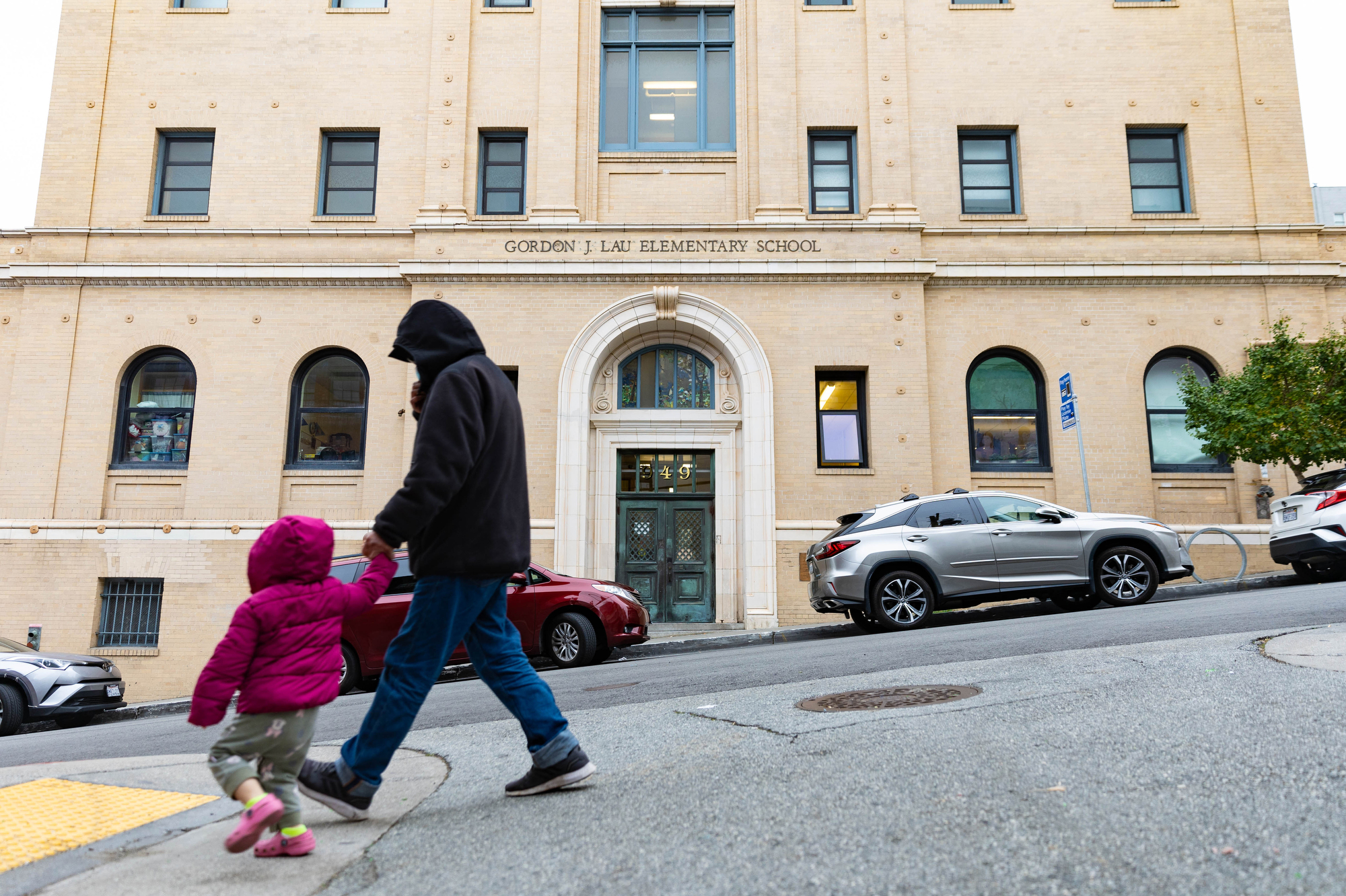
After winning his case in the Supreme Court, Wong Kim Ark continued to work and travel back and forth between China and San Francisco. His descendants now live all over California.
Meanwhile, the CCBA — which celebrated its 175th birthday last year — continued to support other Chinese American families as they took on discriminatory policies at every level of government throughout the 19th and 20th centuries. When California Attorney General Bonta announced the state’s lawsuit against Trump’s executive order, CCBA leaders stood alongside him.
“The Chinese community has taken on [these legal fights] deliberately, as a community, as a strategy, winning all these rights for all Americans,” said Lei, from the Chinese Historical Society of America, pointing to 1974’s Lau v. Nichols, a class action suit brought by Chinese students in the San Francisco Unified School District who did not speak English that helped establish bilingual education in schools across the country.
For Chen, the Wong Kim Ark case — which hinged on an amendment first intended to preserve citizenship for the descendants of formerly-enslaved Black people — is symbolic of how legal battles for equality in the U.S. have been furthered by various communities for different groups.
“A lot of the modern debate is largely about DACA recipients, DREAMers, people who came to the United States from Mexico and other parts of Latin America,” she said. “I think you can really see that this issue touches so many different corners of America.”
“That’s where birthright citizenship is so important,” she said. “And trying to challenge it is so dangerous because it’s not just about trying to find equality in one lifetime. It’s about trying to cut off the possibility forever for a community.”
This story was originally published on Nov. 22, 2024





